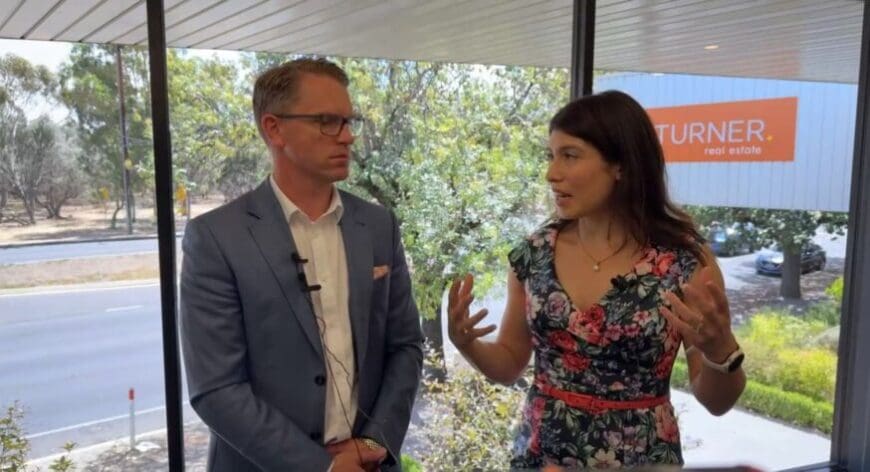Most people only start thinking about their retirement 5-10 years before they plan to retire. Unfortunately, once they start realizing the reality of their financial position, it is too late. They then generally wish they had started planning for retirement much sooner. A way to prevent this is to get started in property investment as soon as possible.
It is suggested that 81% of the Australian population aged 65 years or over will need to continue working. This is for financial reasons as if not, they will have a retirement income of less than $50,000 per year. They will then need to rely on government pension and superannuation. Because of this, these individuals would be experiencing a far lower standard of living than the one they desire.
Life expectancy continues to rise to 95 for males and 97 for females by 2050. This means that many of us will spend more than a quarter of our lives retired. Therefore, it is essential that you think about the retirement you want and how you will fund your retirement before you retire.
Once you have made the decision to take control of your financial future and invest, the next question is – what do you invest in?
In this blog, well discuss why you should get started in property investment as your investment vechicle of choice. This article also discusses how to mitigate the risks and how to buy an investment grade property.
Why property?
Consistent and predictable growth
Historically, property investment has delivered consistent and compounding growth. Over the long-term, we have seen property values in metropolitan cities in Australia double every 7-10 years on average. Whilst no one has a crystal ball, the supply and demand factors (new buildings vs population growth) that have resulted in the historic growth of our property market still exist in Australia today. Thus, a fair assumption is that the property growth we have enjoyed historically will continue throughout our lifetime and beyond.
Less volatile than shares
If you have ever invested in the share market, you will know first-hand that the value of your investment can fluctuate dramatically overnight. The same is not true for property and one of the main reasons is that about 70% of houses in Australia are owned by owner occupier rather than investors.
Easy to manage
We all live busy lives and your wealth generation strategy should complement and enhance your lifestyle, rather than consuming your spare time. Once you buy a property and find a great property manager, you can sit back, collect the rent and watch your asset grow.
Tax-effective
Property is also a tax effective investment strategy and may help you manage your income tax during your working life.
Leverage
Arguably, the number one benefit of property investment is the ability to leverage greater than any other asset class. Leverage is using someone else’s money (i.e. the bank’s money) to build your personal wealth! Banks understand property and understand the growth that property values will have over time. Therefore, banks are willing to lend up to 90% of the value of the property to their clients.
Mitigating your risks
As with any type of investment, there are risks associated with property investment. However, almost all risks can be mitigated, giving you control over protecting your asset. The main risks you will need to mitigate as an investor include:
- The tenant damaging your property.
- The tenant leaving before their lease is up.
- The risk of not being able to find a tenant and having a vacant property.
- Increasing property related expenses (e.g. interest rates).
- Changes in your personal circumstances.
- The tenant not paying rent.
Points 1-4 is in relation to tenant related risk. You can protect yourself and your property from these risks by simply having a great landlord’s insurance policy. That and an experinced property manager looking after your investment will hugely mitigate your risks.
Regarding increasing costs, more specifically increasing interest rates, you can fix your interest rate on your loan to give you peace of mind!
The final risk of changes in personal circumstances refers to illness or death affecting the family income. For the security that personal insurance can give you, such as income protection and life insurance, it is well worth the cost!
Buying an investment grade property
Not every property is an investment-grade property. It can be overwhelming to decide where to look and what type of property to buy. There are certain attributes your investment property needs to ensure that it is going to be a good long-term investment. For a property to make a good investment property, it needs to be:
- Close to everything a tenant needs (shops, schools, public transport, medical facilities).
- Structurally sound to stand the test of time.
- Low maintenance
- Suitable for the target tenant – you want to ensure that the property you are buying will be attractive to the type of tenants that you would normally expect to rent a house in the location you are buying in.
As you work on finding the right property to grow you investment portfolio, learning more about negotiating the right house price can also come in handy!
Building the right team of experts
In building your portfolio, you have two choices:
- You can either spend hours and hours researching and trying to become an expert in every aspect of insuring your property investment journey is a success, or
- You can build a great team of experts that you trust, respect and that are going to give you the right advice, guidance, and support to assist you on your journey.
If you want to successfully build a strong property portfolio that will allow you to have the lifestyle and retirement you desire, then this is the team of experts you will need in your corner.
- Mortgage Broker – finance is essential for you to be able to build a property portfolio and your ability to be able to access the finance you need will dictate the pace at which you can build your wealth.
- Accountant – one of the advantages of being a property investor is the tax deductions you are entitled to, and these tax deductions are essential for improving your cashflow and the financial performance of your property.
- Conveyancer/ Lawyer – your conveyancer will assist with the legal aspects relating to the purchase of each property you acquire and ensure that your purchase contracts reflect your understanding of what you are purchasing.
- Property Manager – they will be responsible for looking after your interests as a landlord including tenant selection, collection of rent, and repairs and maintenance to protect your asset long-term.
Final thoughts
If you’d like to speak with one of our amazing brokers about how to get started in property investment or to grow your existing investment portfolio, please fill out your details below and we’ll get in touch with you! Click here to learn more about property investment loans.




